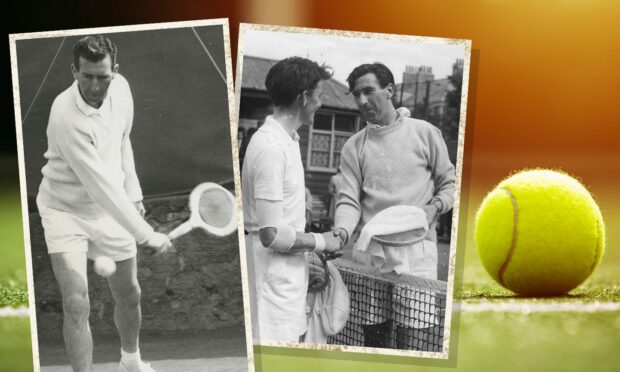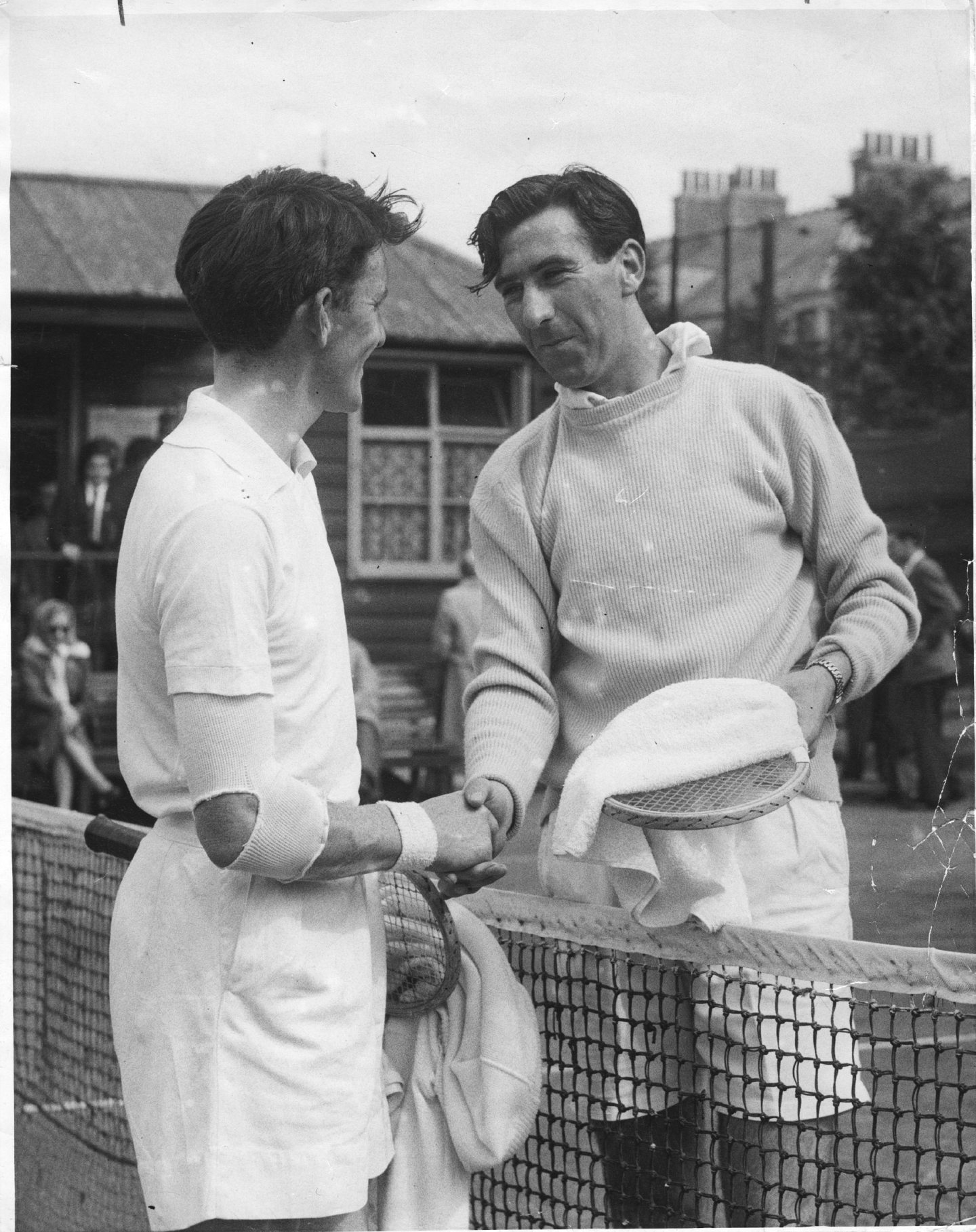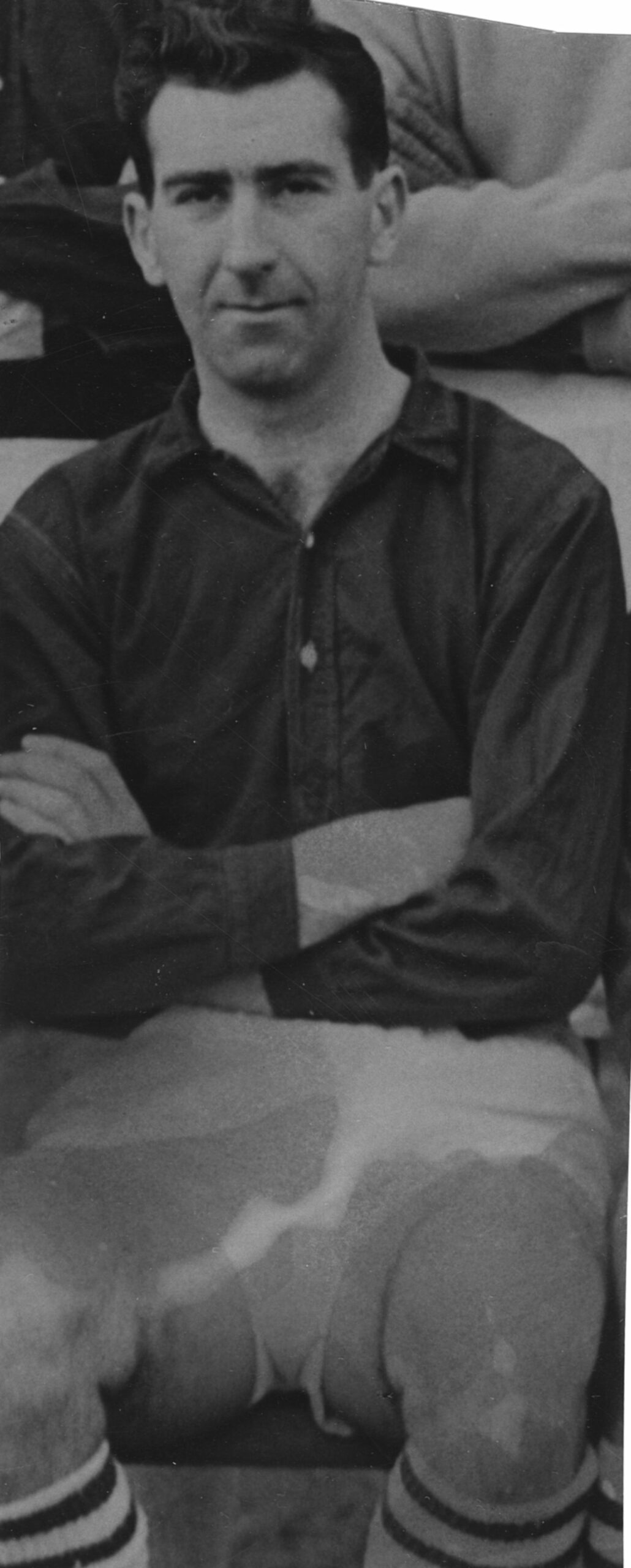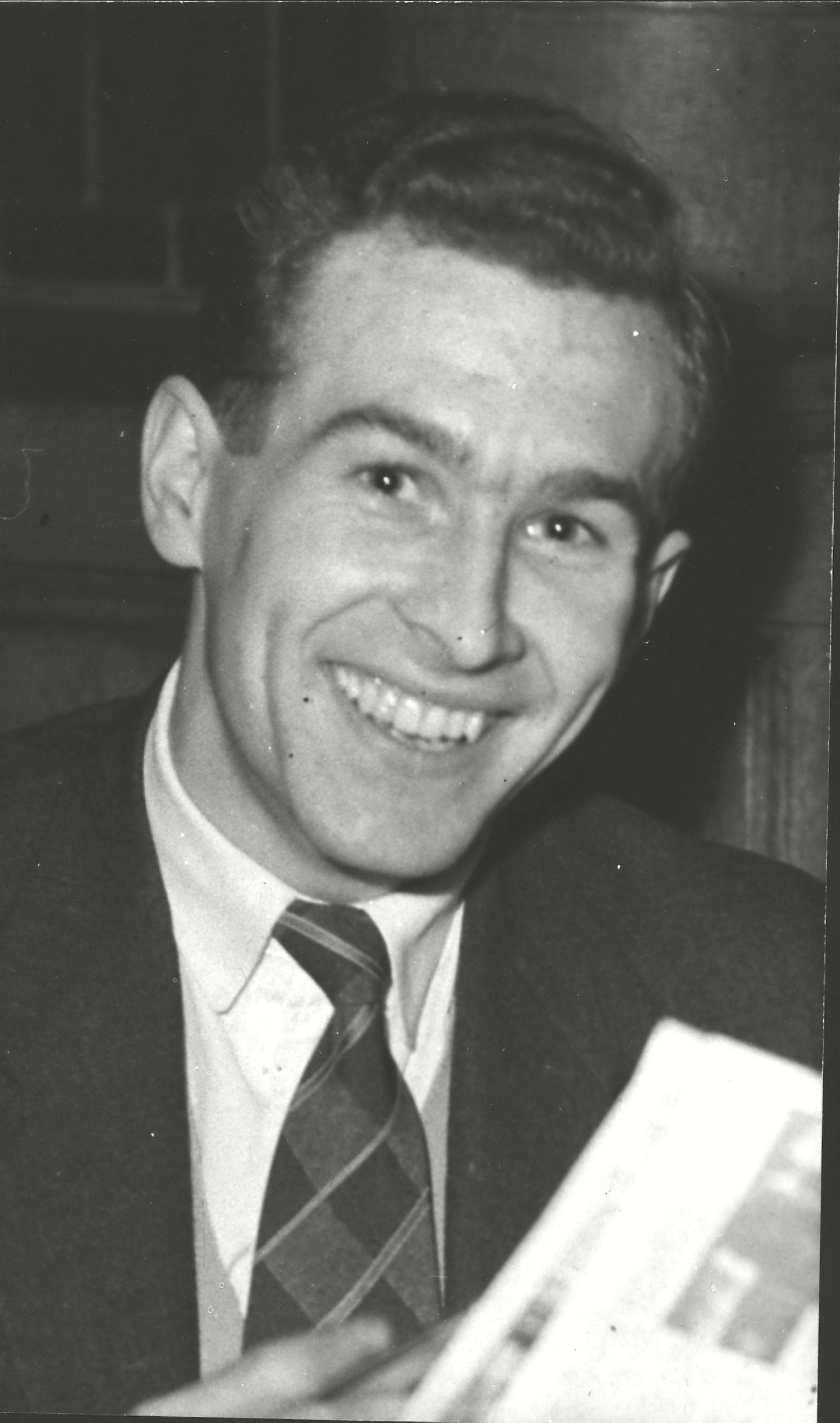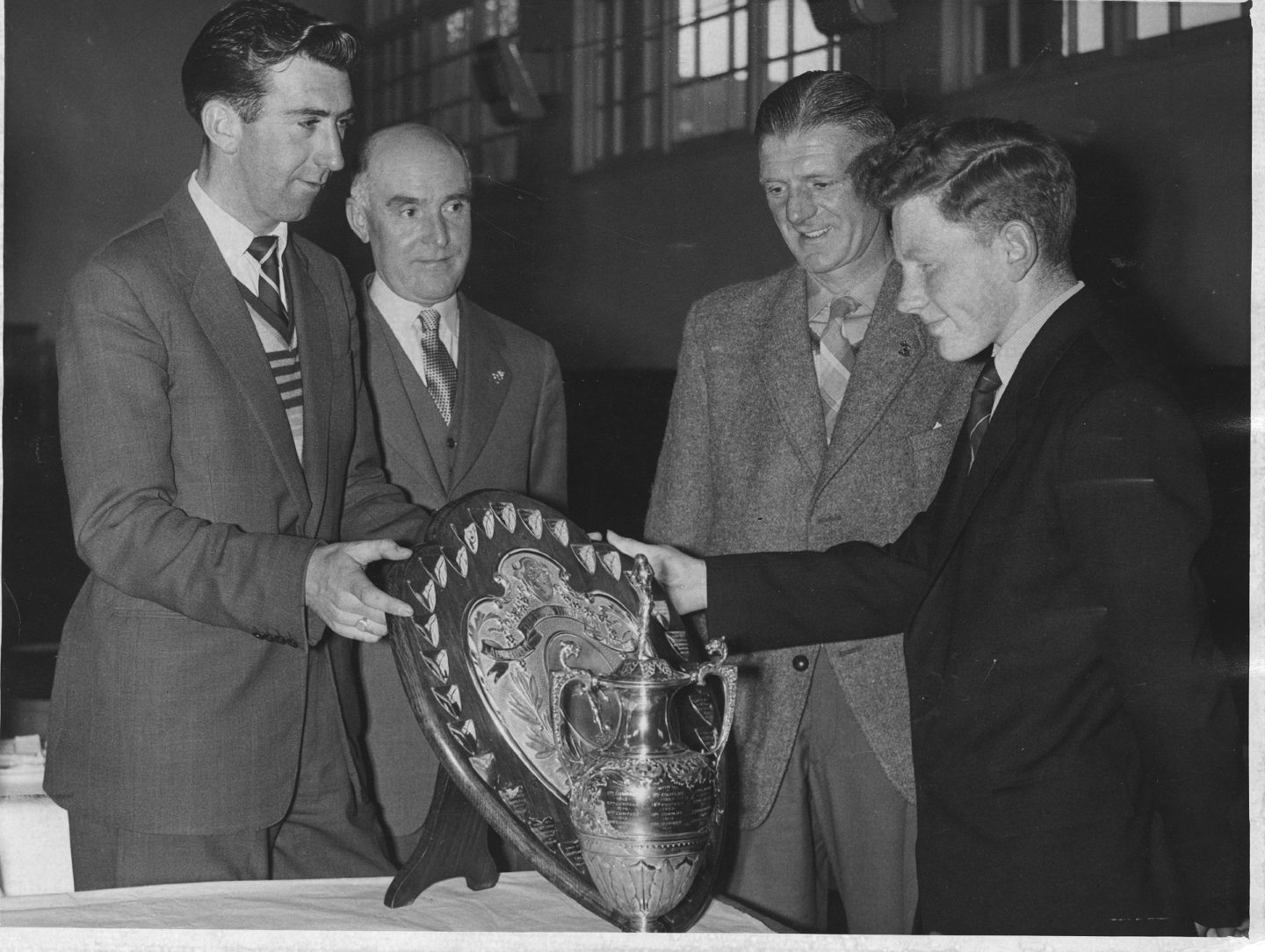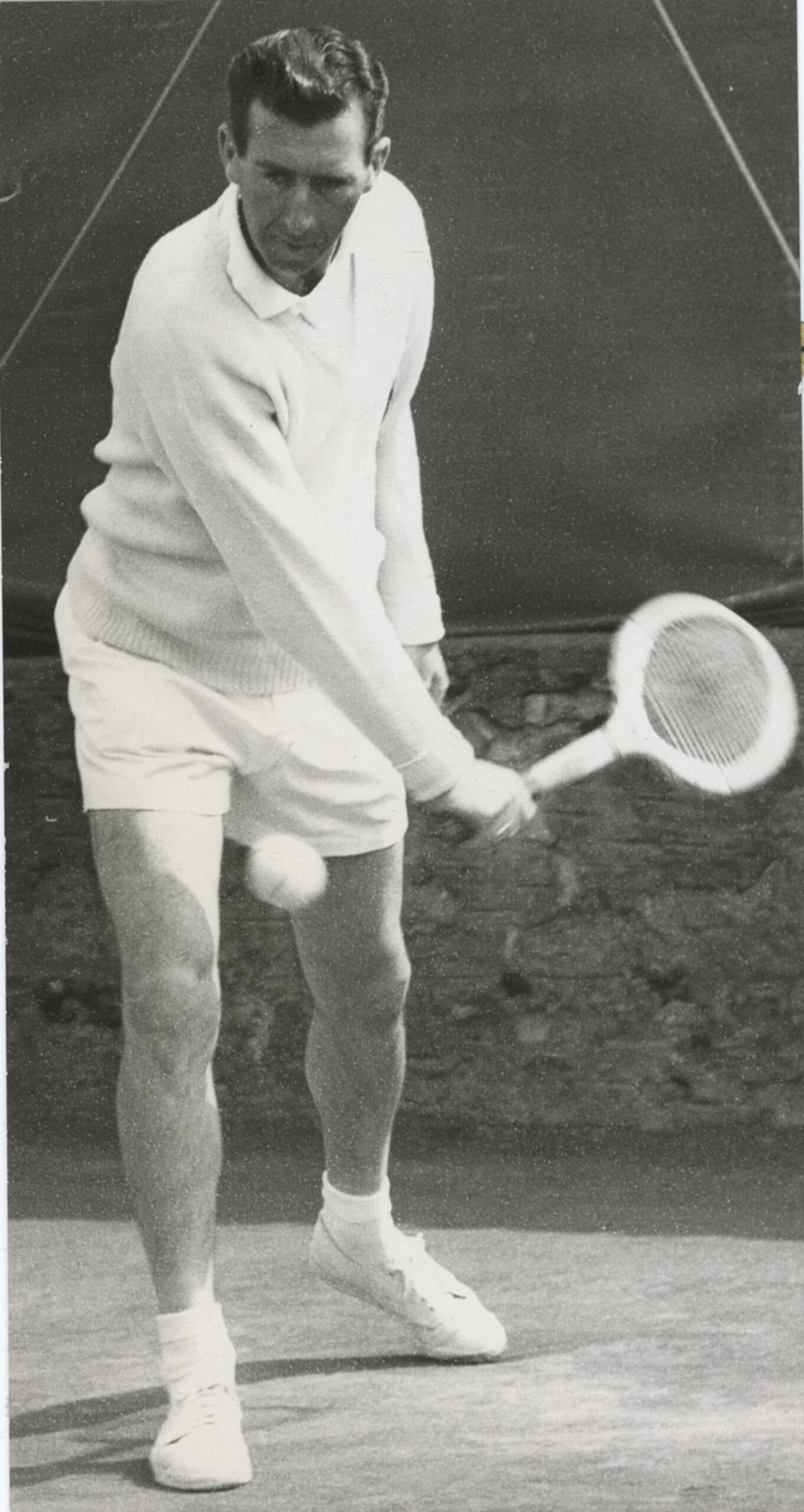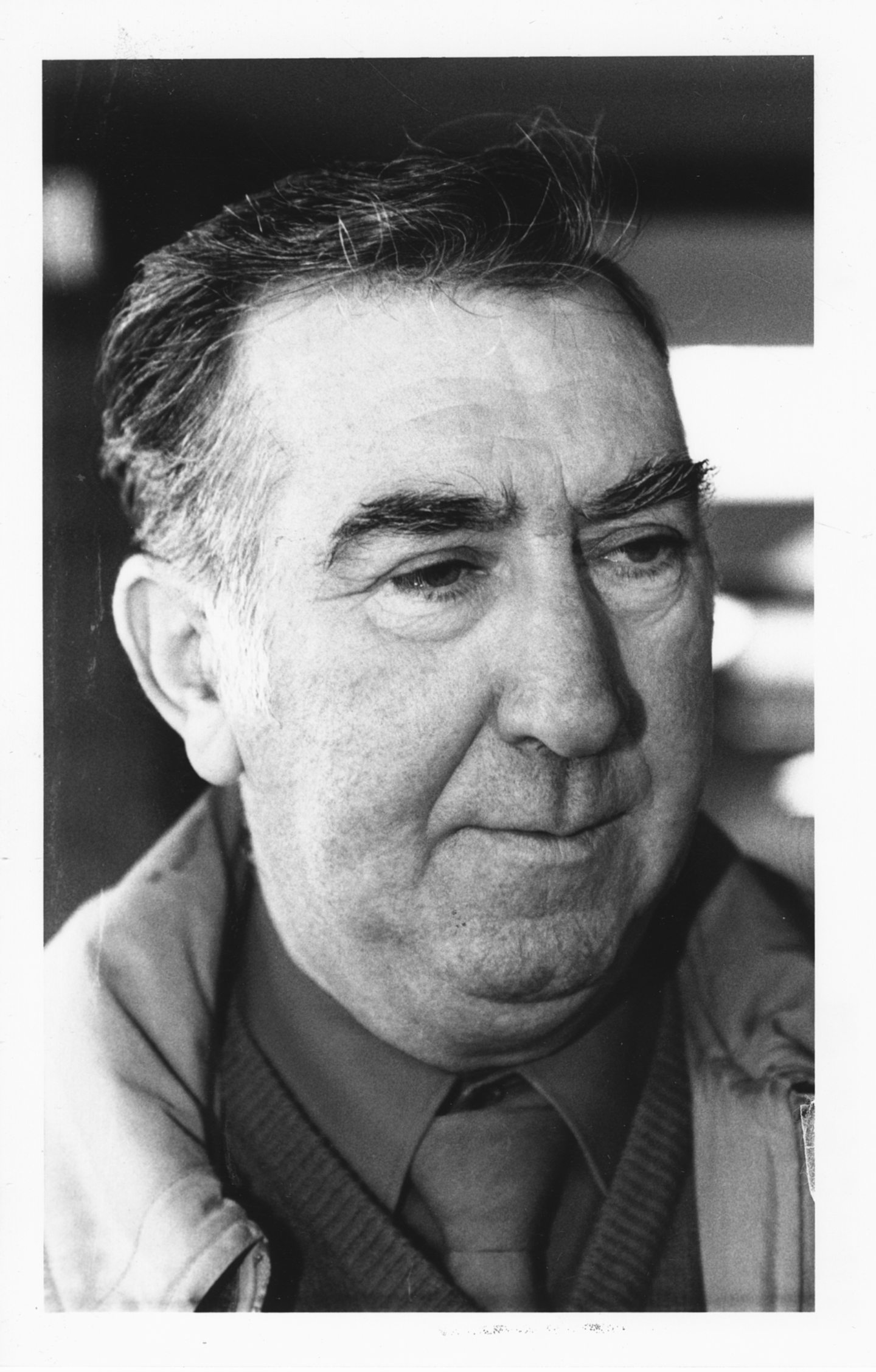His name used to appear in The Press and Journal on a weekly basis whenever there were court activities to report in the north-east.
But fear not, George Kelly was dealing in positive headlines and worthwhile achievements whenever he picked up a tennis racket, either on his own, or in partnership with his Aberdeen colleague Jimmy Wood; one of the most successful doubles combinations who have ever played in their homeland.
This was in the 1960s and 1970s, but even if was a world removed from the multi-million-pound circuit into which the sport has developed, there was something joyful and enthusiastically infectious about the effervescent fashion in which George relished meeting and beating opponents.
Many of his rivals were probably unaware that, in the early 1950s, the youngster had performed with Aberdeen FC and moved on to a professional career in England with Stoke City. Or that he had gained international recognition for his country in Junior football while he was at Banks o’ Dee.
That was just the way it was with this engaging fellow; there was no fuss, no histrionics, just a whole-hearted pleasure in kicking, hitting or potting – he was no mean snooker competitor – a ball in front of him.
He was in a very talented Dons squad
When George joined Aberdeen in 1953, he had already demonstrated plenty of ability in the football realm, but it was his misfortune to be in the same position – inside-left – as Dons legend, Bobby Wishart, one of the pivotal performers in the Pittodrie collective which won the club’s first-ever championship title under Dave Halliday in the 1954-55 campaign.
As his sister, Helen McIntosh, told me: “George really enjoyed being at Aberdeen, but he only got a few games in the First XI and obviously, that can become a bit frustrating. So he put in a transfer request and went to England.”
It was no reflection on his ability, considering he had served ample notice of his qualities during the few opportunities he did receive.
Indeed, George proved he was up to any challenge when he turned out in front of 25,000 supporters against Rangers at Pittodrie in November 1953.
He and his north-east team mates dominated the proceedings, but the match ended in a 1-1 draw. Nonetheless, as The Press and Journal reported: “The youngster Kelly looked lively and comfortable in possession and showed several times that he was more than willing to go forward in attack.”
However, it was a sign of the embarrassment of riches at Pittodrie that he was forced to wait 18 months for his next senior outing on a tour on Ireland in 1955 when he twice took the field against Home Farm Select (which finished 4-3) and Glentoran (a benefit contest which ended 3-4).
His next league action came in October 1955 during a 3-2 victory against Queen of the South in the old Division 1. And his final show arrived a month later in a 6-0 hammering of Arbroath at Gayfield.
But for Wishart, who knows how things might have transpired?
And yet, the strapping 6ft 1in Scot was in his element after he had travelled South to join the Potters and secure regular first-team football.
The history books may record that Kelly glittered only briefly at the Victoria Ground, but he swiftly became a fans’ favourite and enhanced his reputation with a prodigious tally of 35 goals in 67 fixtures between 1955 and 1958.
If anything, he settled into the groove in his final season in the Midlands and became Stoke’s leading scorer with 24 goals in a season where word was spreading about his rugged qualities. He was, in showbusiness parlance, box-office, but he never wanted to stray too far from his roots.
Next up was a brief sojourn in Wales
As the Evening Express reported at the end of April in 1958: “Holidaying in Aberdeen until the end of June is George Kelly, former reserve Dons inside forward. Next season, he will be playing for Cardiff City.
“His transfer from Stoke has been completed, but as Cardiff’s last two games are against clubs in the promotion race, he was not eligible to play.
“In the circumstances, Trevor Morris, manager of the Ninian Park club, has been in no hurry to lodge Kelly’s registration with the FA.”
As it transpired, he only played eight times for the Welsh club (scoring four goals). And, while George enjoyed a longer stay at Stockport County, where he found the net on another four occasions in 34 outings, he was determined to return to Scotland and find other opportunities for sporting success.
In which light, why shouldn’t he renew acquaintances with Jimmy Wood, who had also played (in goal) at Banks o’ Dee and was a veritable whizz at tennis?
Soon enough, this pair had established a reputation as one of the most powerful doubles teams of their generation.
George and Jimmy were twice Scottish national doubles champions, the former represented his country against Ireland and Wales in the Home Internationals and the duo graced a litany of venues all over Scotland, including the facilities at Cults, Rubislaw, Osborne, Westburn and myriad other places in the north and north east.
As Helen said: “They won a lot of titles together, which you’ll probably be able to find in The Press and Journal cuttings [yes, they were hugely successful], and they enjoyed each other’s company. It maybe wasn’t as serious for George as Jimmy, who later took part in Wimbledon veterans’ tournaments, but they were involved in singles, doubles, mixed doubles….they just wanted to play.
“George also played badminton, he was good at snooker, he was an all-rounder – he had an eye for a ball and seemed able to pick up games quickly.”
The duo have left happy memories
George died at only 65 in Aberdeen in 1998, whereas Jimmy was still on the court for more than another decade, before he passed away aged 85 in 2020.
In another time, another place, they could perhaps have cashed in on their talent, yet that was never the main motivation for these blithe lads.
As Jimmy once said: “Tennis is a game from the cradle to the grave, from being a tiny kid to an old-age pensioner like myself.”
George shared that belief in spreading his wings.
Ultimately, he was a force of nature with an irrepressible philosophy that you only live once and you had better pack as much into your life as you possibly can.
You might also like:
The forgotten story of how Dutch maestro Johan Cruyff almost played for Aberdeen
